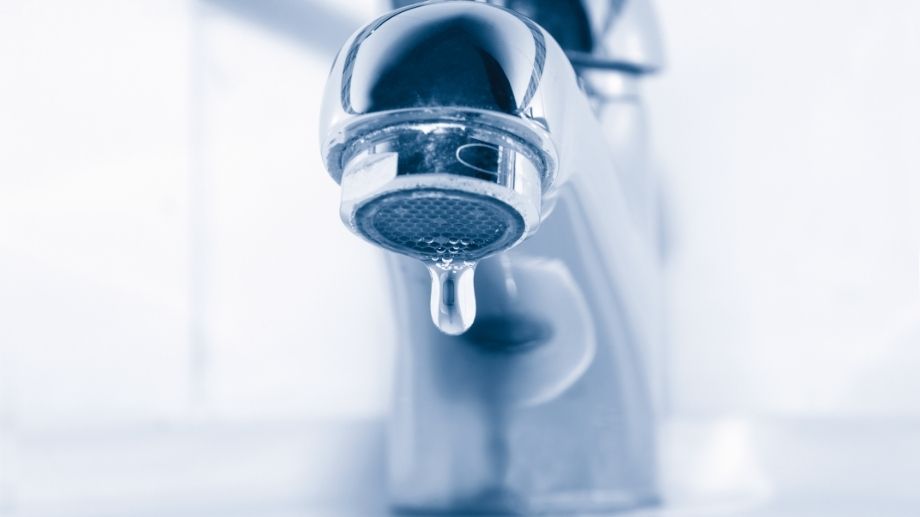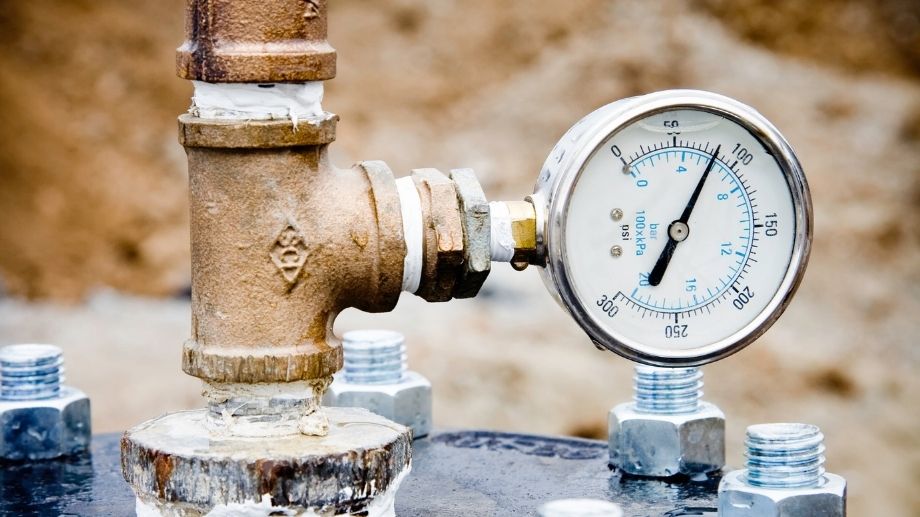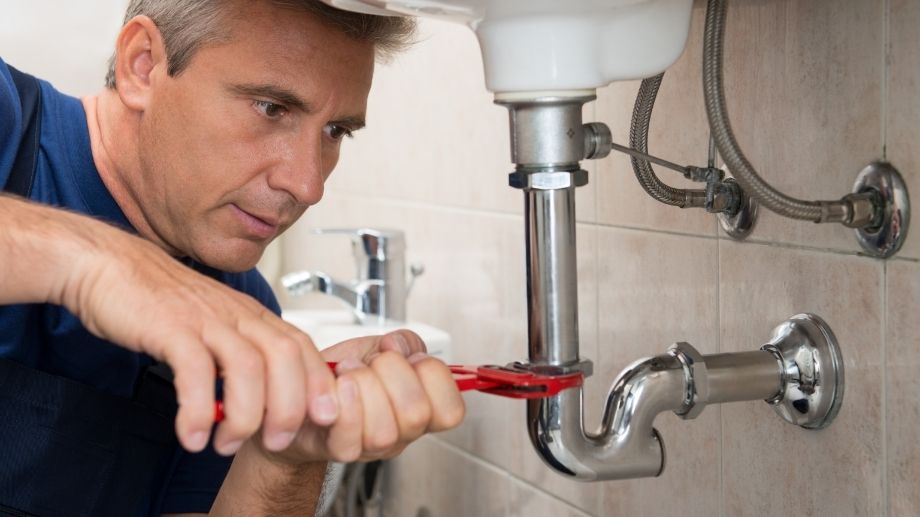Water Pipes Keeping You Awake At Night? 5 Reasons Why
Hands up if you’ve been in this situation – you’ve woken up in the middle of the night for a quick glass of water, or maybe gotten out of bed at the crack of dawn for an early shower.
You’ve turned on the taps only to set off an unwelcome symphony of bangs, crashes and clatters coming from the pipes. It’s the last thing you want to hear at that time of the morning, but if you live with other people – be it in a share house or the family home – it’s absolutely the last thing anyone wants to hear at that time of the morning. Particularly as they try to sleep.
If your water pipes are making sounds that resemble a headache-inducing score to a movie no one wants to watch, fixing the situation to reduce the likelihood of it happening again is crucial.
Noisy pipes not only keep everyone awake at night, they can also lead to other water pipe problems that can seriously affect your plumbing. So to help you avoid becoming public enemy number one in your home, let’s explore some of the reasons why your water pipes might start making those unwanted noises, and what you can do to stop them.
1. Stop! Water Hammer Time
One of the most common causes of noisy water pipes is what is referred to as ‘water hammer’. Water hammer is the term used to describe the sound that occurs when fast flowing water reaches an unexpected stop, usually due to a tap that has been quickly shut off, and results in a loud thud sound coming from the pipes that resonates through the house.
A plumbing system that has been installed correctly will have an air chamber built in – usually a thin length of vertical pipe – that serves as a shock absorber of sorts. The natural compression of the air enables the chamber to cushion the effect of the hard contact between the flowing water and the piping, and in doing so reduces water hammer. Over time though, the air chamber can actually run out of air, making it impossible to maintain its shock absorbing properties.
To rectify this, you’ll need to replenish those chambers with air. Luckily the process is relatively easy. All you need to do is:
- Locate your home’s main water supply valve and shut it off.
- Turn on the highest positioned tap in your home.
- Do the same with the lowest positioned tap, whether it’s indoors or located somewhere outside on your property. This will empty out any lingering water in your pipes and replace it with air.
- As soon as your pipes have been entirely drained of water, shut off the lowest tap and open up the primary valve once again.
Doing this will force out the air from the water lines (the horizontal and open vertical lines). It may pay though to ensure the pipes are cleared of any debris or foreign materials first; this will make it easier to then clear the pipes of any excess water.
You might hear the occasional gurgle or sputter as the air is pushed out of the taps. That’s normal. More importantly though, the air chambers will remain fully replenished and the water hammer issue will be stopped. If you try this though and the problem persists, purchasing and attaching a water hammer arrestor or contacting an emergency plumber might be your best course of action.
2. Tap or Valve Washers Have Worn Out
Another component that can experience wear and tear with consistent, frequent usage, and may lead to excess noise, is the washer found inside the tap. Washers can become loose as they wear out, and can often prevent you from being able to turn off the water once you’ve turned the tap on. In addition to unexpected noises and unstoppable water flow, one extra tell-tale sign that a washer is nearing the end of its lifespan is that the tap will continue to drip while it’s turned off.
Washers should typically be replaced every 1-2 years. They’re relatively easy to replace yourself – just make sure you turn the water off at the main valve first – however if you don’t trust your DIY skills and would prefer the expertise of a professional, then by all means get in touch with a qualified emergency plumber.
3. Excessive Water Pressure
Extreme water pressure can also be a common cause of noisy pipes. If the levels are perhaps higher than what your pipes can withstand, they will typically make large amounts of noise. Standard water pressure for Australian homes is around 45 to 55 psi, so if it’s hitting the 60 to 70 psi mark or even higher, your pipes will almost certainly let you know.
As SA Water states, in Australia all new water connections since 2005 require a pressure limiting valve (PLV) be fitted. Earlier connections may not have had the same fitting though. If your water pressure is too high and you require a PLV to be fitted to your home plumbing, call a qualified and licensed plumber to ensure the job is done correctly. As John Farnham once sang, take the pressure down, and this should fix your noisy piping problem if excessive water pressure is the cause. Reducing the water pressure can also help in reducing water hammer.
4. Loose Pipes Need Tightening Up
Your home’s water pipes can often become loosened, due largely to their continued use and the water pressure that consistently runs through them. As they become loose, they are more likely to move about and bang against walls and other fixtures. But they can be fixed. If your pipes are relatively accessible, check for any loose mounting straps and tighten them up. You can also wrap foam insulation pipes for additional padding that will restrict movement.
5. Main Shut Off Valve is Defective
If your plumbing’s primary shut off valve and/or pressure limiting valve is damaged or faulty, this too can lead to screeching pipes that will often reverberate throughout your home. These can be replaced or repaired too; to take care of the main shut off valve you may need to shut off the water mains supply at the water meter. This will be somewhere outside of your home, somewhere on your property (usually near the street).
These are just some possible reasons why your pipes might be humming a little louder than you like. While some of these measures may be reasonably DIY-friendly, if you’d rather leave it to a professional to ensure the job is done right, then it makes sense to book an experienced plumber. Many plumbers offer emergency services for urgent matters, so whether you have pipes making noise or even have no water running, you can get it seen to as soon as possible.
DISCLAIMER No Legal, Financial & Taxation Advice
The Listener, Reader or Viewer acknowledges and agrees that:
- Any information provided by us is provided as general information and for general information purposes only;
- We have not taken the Listener, Reader or Viewers personal and financial circumstances into account when providing information;
- We must not and have not provided legal, financial or taxation advice to the Listener, Reader or Viewer;
- The information provided must be verified by the Listener, Reader or Viewer prior to the Listener, Reader or Viewer acting or relying on the information by an independent professional advisor including a legal, financial, taxation advisor and the Listener, Reader or Viewers accountant;
- The information may not be suitable or applicable to the Listener, Reader or Viewer's individual circumstances;
- We do not hold an Australian Financial Services Licence as defined by section 9 of the Corporations Act 2001 (Cth) and we are not authorised to provide financial services to the Listener, Reader or Viewer, and we have not provided financial services to the Listener, Reader or Viewer.
"This property investment strategy is so simple it actually works"
Want to achieve baseline financial freedom and security through investing in property? Want a low risk, straightforward way to do it? Join more than 20,000 investors who have transformed the way they invest in property."




